Consensus chaos?
How Delphi brings structure to expert disagreement


Beyond division lies understanding
The air often feels thick with division. In public discourse and organizational strategy alike, achieving meaningful progress seems hampered by fractured perspectives, echo chambers, and dialogues that quickly devolve into deadlock. While finding common ground feels increasingly elusive, the need for shared understanding and informed decision-making to tackle complex challenges has never been greater. The critical question isn’t just can we agree, but how can we foster the deep, shared understanding necessary to even make agreement meaningful? Furthermore, in an age increasingly saturated with AI-generated information and analysis, the need for robust human processes to establish shared values, interpret complex data collectively, and decide on desired futures becomes paramount. Structured methods offer a path, and the Delphi method, especially in its modern form, provides a powerful framework not just for consensus, but for cultivating genuine collective insight.
The echo chamber effect: Why understanding fails.
The challenge of reaching shared understanding is amplified by our modern information environment. Algorithms often curate feeds reinforcing existing beliefs, limiting exposure to diverse viewpoints. Social media can reward performative conflict over thoughtful engagement. In this landscape, facts can become contested, and dialogue easily sours into diatribe. This isn’t merely a societal issue; it impacts boardrooms struggling with strategic alignment, research teams interpreting complex data, and public bodies needing genuine community input. When the environment discourages deep listening and critical examination of diverse perspectives, the foundation for both insight and consensus crumbles.

Delphi: Structuring dialogue for deep understanding
Moving beyond unproductive debate requires more than good intentions; it demands processes designed to counteract these divisive forces and foster genuine cognitive engagement. The Delphi method offers a comprehensive, proven framework specifically designed to harness collective intelligence through structured dialogue focused on reasoning. Developed decades ago at RAND during the Cold War, initially to address complex military forecasting challenges, it was engineered precisely to overcome situations where clashing expert opinions or hierarchical authority could derail objective analysis. Delphi employs core principles directly relevant to today’s challenges:
![]() Anonymity: Creates a safer space, reducing conformity pressure and the weight of authority, allowing ideas to be judged on merit.
Anonymity: Creates a safer space, reducing conformity pressure and the weight of authority, allowing ideas to be judged on merit.
![]() Iteration and reflection: Involves cycles of input and reflection, allowing participants time to process information, consider alternatives, and refine their thinking based on the group’s input.
Iteration and reflection: Involves cycles of input and reflection, allowing participants time to process information, consider alternatives, and refine their thinking based on the group’s input.
![]() Focus on reasoning (the ‘Why’): This is paramount. Delphi requires participants to justify their views. Systematically feeding back summarized arguments allows the group to learn why different perspectives exist, fostering deeper understanding even amidst disagreement. This focus on reasoning is the engine of collective learning.
Focus on reasoning (the ‘Why’): This is paramount. Delphi requires participants to justify their views. Systematically feeding back summarized arguments allows the group to learn why different perspectives exist, fostering deeper understanding even amidst disagreement. This focus on reasoning is the engine of collective learning.
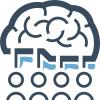
Real-Time Delphi & the platform imperative
Like the world it serves, Delphi has evolved. Traditional multi-round Delphi (MRD), while foundational, often proved slow and cumbersome. Real-Time Delphi (RTD) leverages technology for a more dynamic, efficient process with immediate feedback. However, as we’ve explored “Delphi died? Far from it, but your platform might be stuck in the past“, speed alone doesn’t guarantee deeper insight if the underlying goal of deep understanding is neglected. The quality of the facilitating platform becomes critical.
Many basic RTD tools excel at showing real-time statistics but fail to make the rich qualitative reasoning easily accessible or explorable. This overemphasis on quantitative convergence at the expense of qualitative exploration can create an “illusion of insight” – agreement achieved without genuine shared understanding.

The true goal: Insight and understanding, not just numbers
A common pitfall in implementing Delphi, whether multi-round or real-time, is becoming overly focused on achieving numerical consensus as the primary outcome. Setting convergence targets or using consensus levels as the main Key Performance Indicator (KPI) can be tempting for organizers seeking clear ‘results’. However, this focus fundamentally misunderstands Delphi’s core value and can be counter-productive. Delphi is not a tool for forcing agreement – it is a tool for fostering deep collective understanding.
When the process (or the platform facilitating it) prioritizes hitting a certain level of statistical agreement above all else, it can inadvertently:
![]() Create pressure for participants to conform, even against their better judgment.
Create pressure for participants to conform, even against their better judgment.
![]() Marginalize valuable outlier perspectives that deviate from the central tendency.
Marginalize valuable outlier perspectives that deviate from the central tendency.
![]() Lead to a superficial consensus where participants agree on a number but lack shared understanding of the underlying reasons or implications.
Lead to a superficial consensus where participants agree on a number but lack shared understanding of the underlying reasons or implications.
Platforms designed mainly to display convergence metrics without equally robust features for exploring why opinions differ can exacerbate this problem. The real objective should be to leverage the structured process to enable participants to learn from each other’s reasoning, identify areas of genuine agreement and disagreement, and build a rich, nuanced map of the collective understanding. Informed decisions and robust, meaningful consensus are the outcomes of this deeper insight, not endpoints achieved by pushing numbers together.

Next-generation platforms: Tools for insight, not just agreement
The true power of modern Delphi lies in next-generation RTD platforms designed explicitly to facilitate deep dialogue and collective reasoning. These platforms move beyond data collection to actively cultivate understanding through features like:
![]() Intuitive reasoning exploration: Making it effortless for participants to see not just scores, but the justifications behind them, with powerful tools to filter, sort, compare, and connect related arguments. Understanding the ‘why’ becomes central.
Intuitive reasoning exploration: Making it effortless for participants to see not just scores, but the justifications behind them, with powerful tools to filter, sort, compare, and connect related arguments. Understanding the ‘why’ becomes central.
![]() Intelligent guidance: Helping participants focus attention on key areas of disagreement, emerging themes, or novel arguments, ensuring critical insights aren’t lost in the noise.
Intelligent guidance: Helping participants focus attention on key areas of disagreement, emerging themes, or novel arguments, ensuring critical insights aren’t lost in the noise.
![]() Integrated interaction: Supporting structured discussion, comment rating, or argument mapping within the Delphi flow, enabling genuine collaborative learning.
Integrated interaction: Supporting structured discussion, comment rating, or argument mapping within the Delphi flow, enabling genuine collaborative learning.
![]() Clear visualization: Presenting complex patterns of opinion and reasoning together, revealing the full landscape of thought beyond simple averages.
Clear visualization: Presenting complex patterns of opinion and reasoning together, revealing the full landscape of thought beyond simple averages.
Platforms like 4CF Halnyx 2.0 exemplify this next-generation approach. Developed by experienced Delphi practitioners, Halnyx is specifically architected to make deep engagement with diverse perspectives and their underlying reasoning intuitive and efficient. By enabling structured dialogue powered by effortless exploration of the ‘why’, such tools provide the necessary environment for groups to move beyond surface-level agreement towards robust, shared understanding, even on highly divisive topics.

From division to deep insight with modern Delphi
Finding consensus in a divided world requires more than forcing agreement; it demands fostering genuine mutual understanding first. While polarization and echo chambers present real challenges, structured methodologies like the Delphi method offer a proven pathway. Its principles directly address many dynamics that derail productive dialogue, shifting the focus towards reasoned deliberation – a skill even more crucial as we navigate a future filled with both human disagreement and vast amounts of AI-generated information.
Realizing Delphi’s full potential today – achieving not just consensus, but deep collective insight that leads to wiser decisions – hinges on moving beyond outdated tools and superficial metrics. By leveraging next-generation RTD systems like 4CF Halnyx 2.0, designed explicitly for deep interaction and facilitating the exploration of reasoning, organizations can effectively bridge divides. They can cultivate the shared understanding and collective wisdom needed to determine human values and chart our course amidst complexity, ensuring that agreement, when reached, is both informed and robust.
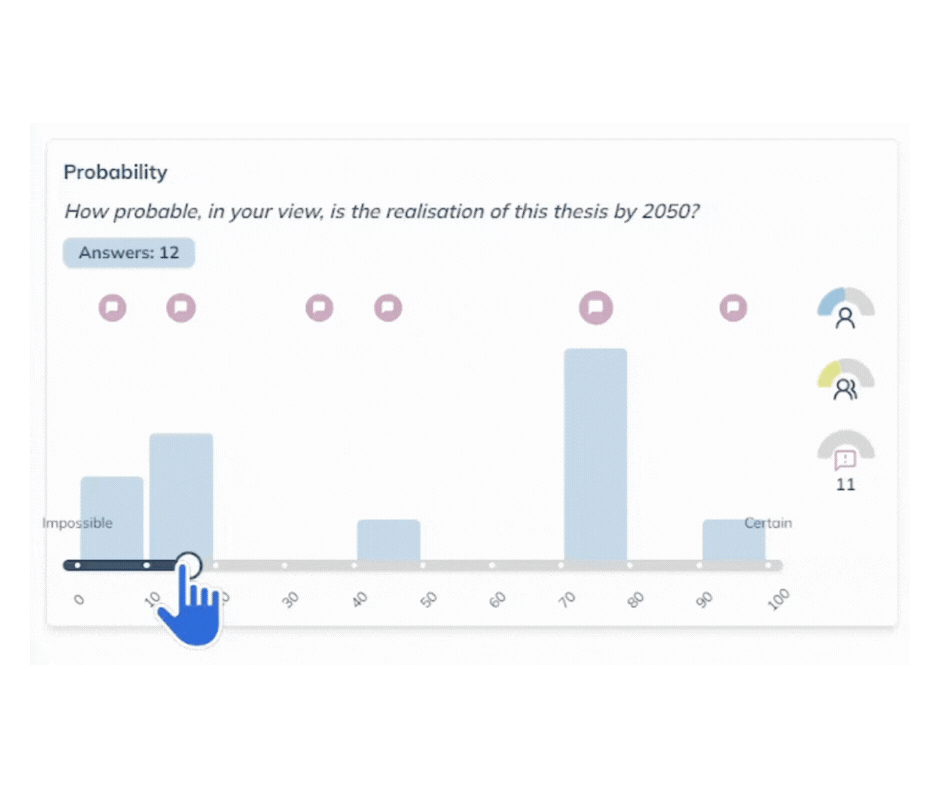
Experience the next generation of Delphi
4CF Halnyx 2.0 provides the intuitive, powerful, and insight-focused platform needed to conduct effective Real-Time Delphi studies that deliver meaningful results.
Interested in Delphi and RTD? Explore our expert series:
4CF Delphi Expert Series offers comprehensive insights, drawing on extensive experience, covering everything from the fundamentals to advanced applications and the crucial role of next-generation platforms. Whether you're new to Delphi or an experienced practitioner, explore these articles to deepen your knowledge and enhance your results.
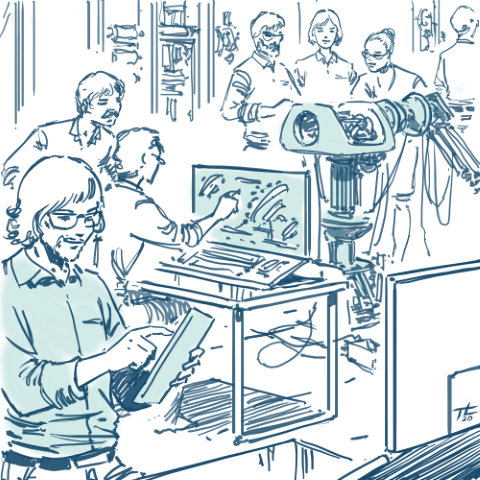

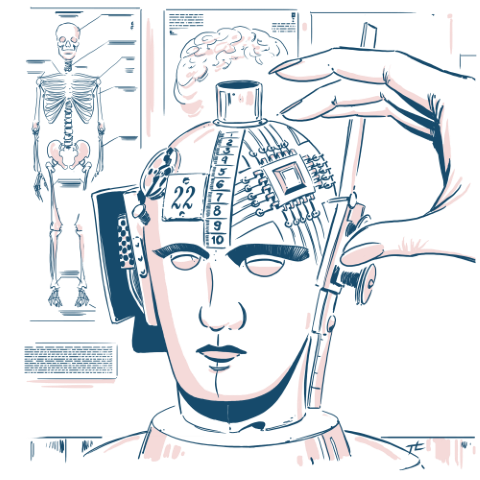


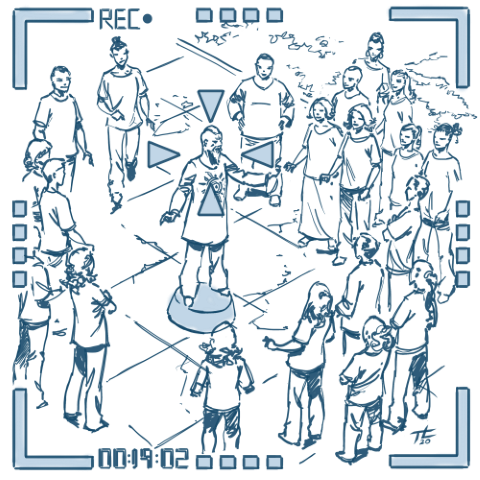
Explored these? Discover even more in our full Delphi series
Interested in Delphi and RTD? Explore our expert series:
4CF Delphi Expert Series offers comprehensive insights, drawing on extensive experience, covering everything from the fundamentals to advanced applications and the crucial role of next-generation platforms. Whether you're new to Delphi or an experienced practitioner, explore these articles to deepen your knowledge and enhance your results.
Explored these? Discover even more in our full Delphi series
Stay updated! Subscribe to our newsletter:
By subscribing to our newsletter, you consent to the processing of the provided data. The data controller is 4CF Sp. z o.o., its registered office is located in Warsaw, 10/14 Trzech Krzyży Square, postal code: 00-499.
We process your data solely for the purpose of sending information about 4CF Sp. z o.o. and its activities via e-mail. Your data will be processed until your consent is revoked through a link that will be included in each newsletter. The withdrawal of consent shall not affect the lawfulness of processing based on consent before its withdrawal. Providing your data is voluntary, but necessary if you wish to receive information about 4CF Sp. z o.o. and its activities. We may transfer the data to our suppliers of services related to the processing of personal data, e.g. IT service providers. Such entities process data on the basis of a contract with our company and only in accordance with our instructions. You have the right to request access to your personal data, its rectification, deletion or limitation of processing, as well as the right to lodge a complaint with the supervisory authority. More information about your rights and about the processing of your personal data can be found in our privacy policy.






